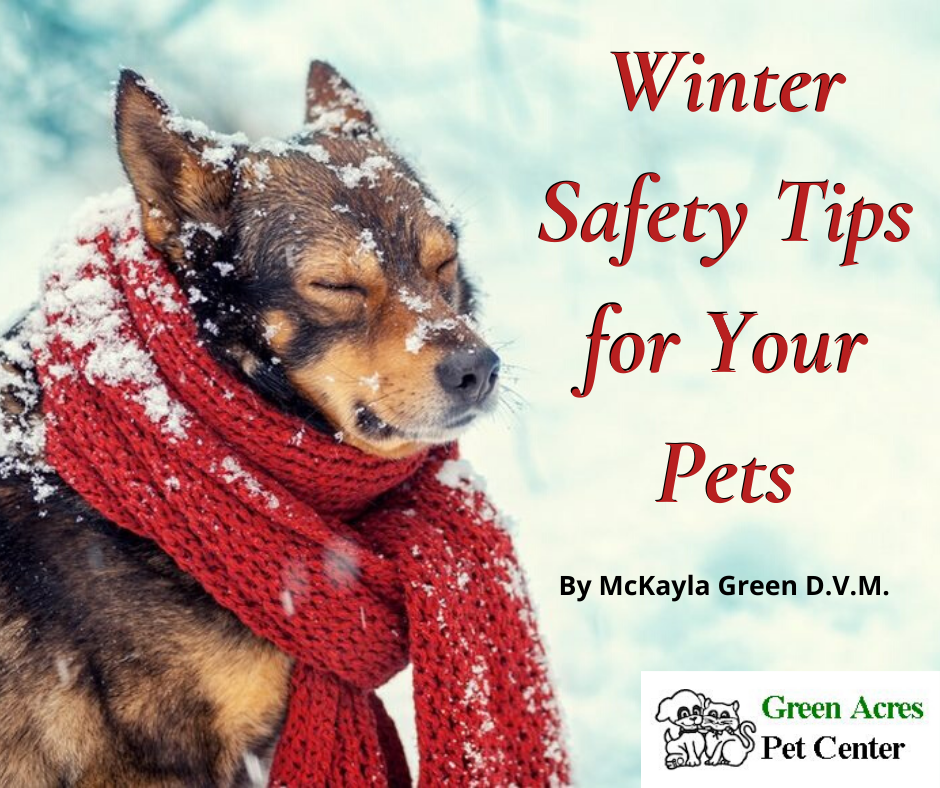
1. Limit pet time outdoors, or provide a dry, insulated, and draft-free shelter for outdoor animals with access to a heated water source.
- Puppies, kittens, geriatric, and sick animals are at increased risk for hypothermia and should not be left unattended for an extended period of time while outdoors.
- Bring outdoor pets inside when temperatures reach below 32֯ (freezing). 2. Clear pathways and look out for rock salt that can harm paw pads.
- Rock salt can be caustic to paw pads – Brush off/remove snow and salt after contact. 3. Cats will often seek warmth under cars or under car hoods.
- Check under your car, bang on the hood, or honk the horn before starting your vehicle if parked outside.
4. Keep antifreeze away from animals, as it poses a toxic risk. Cleanup after spills. If ingestion/contact with antifreeze is suspected, have your pet checked over by a veterinarian.
A thorough exam and bloodwork may be warranted as antifreeze can cause kidney failure.
5. Reflective collars, leashes, and coats can be helpful to help spot animals in winter conditions, helping to preventing accidents.
6. Familiarize yourself with hypothermia symptoms:
- Rectal temperature below 98֯ F
- Excessive shivering
- Weak pulse
- Lethargy
- Muscle stiffness
- Breathing difficulty
- Lack of appetite
- Coma
- Cardiac arrest
7. Know what to do if your pet displays any signs of hypothermia:
- Bring pet inside and start to warm them slowly. Warm towels and heated water bottles placed against animals’ core can assist in this process. Avoid heating pads, as these can cause burns.
- Call your veterinarian immediately for assistance.
8. Know the signs of frostbite and how to treat:
Signs:
- Discolored skin – pale, gray, or blue acutely; skin may turn red and inflamed following insult.
- Painful distal extremities and ears.
- Changes in skin appearance – shriveling.
How to treat:
- Apply warm water to extremities or give warm bath.
- Avoid heating pads, as these can cause burns.
- Call your veterinarian immediately for assistance.
If you have any concerns or questions about these tips, feel free to contact me with questions. Happy Holidays! I look forward to caring for your pets soon!

